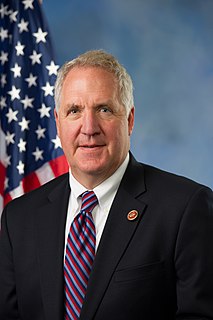A Quote by Thomas Homer-Dixon
hen the price of carbon reaches $100 a tonne, then it will become an economically viable business proposition to start taking CO? out of the atmosphere and sequestering it underground.
Quote Topics
Related Quotes
We have to be bringing carbon out of the atmosphere, and we can't wait for these magical technologies that are somehow going to suck the carbon out of the atmosphere in the future and mean we can do business as usual. And so, what we have to do, what we're going to need to do, is really work with nature to repair the climate.
There's no free lunch. If you want an industrial economy, you need energy. If you want energy, it will produce pollution. You can have it in two forms. You can have it dissipated in the atmosphere - like carbon dioxide - which then you cannot recover, or you can have the waste concentrated in one small space like nuclear. That is far easier to deal with. The idea that you can be able to create renewable energy at a price anywhere near the current price for oil or gas or coal is a fantasy.
To put it in context, the federal government was, at the beginning [of the Vancouver meeting], talking about a $15-per-tonne floor for carbon emissions. We're at $30 a tonne, so we're already double that. But our economy is growing at a faster rate - three per cent of GDP is our projected growth in British Columbia.
[W]hen we look at the graphs of rising ocean temperatures, rising carbon dioxide in the atmosphere and so on, we know that they are climbing far more steeply than can be accounted for by the natural oscillation of the weather ... What people (must) do is to change their behavior and their attitudes ... If we do care about our grandchildren then we have to do something, and we have to demand that our governments do something.
The essential fact which emerges ... is that the three smallest and most active reservoirs ( of carbon in the global carbon cycle), the atmosphere, the plants and the soil, are all of roughly the same size. This means that large human disturbance of any one of these reservoirs will have large effects on all three. We cannot hope either to understand or to manage the carbon in the atmosphere unless we understand and manage the trees and the soil too.
We need to put a price on carbon, and that's what cap-and-trade does and that's also what a CO2 tax does. As long as our current valuation in the marketplace tells us every minute of every day that it's perfectly all right to dump 90 million tons of global warming into the thin atmosphere surrounding the planet every 24 hours as if that atmosphere is an open sewer, then the individual actions are not going to solve the problem.

































